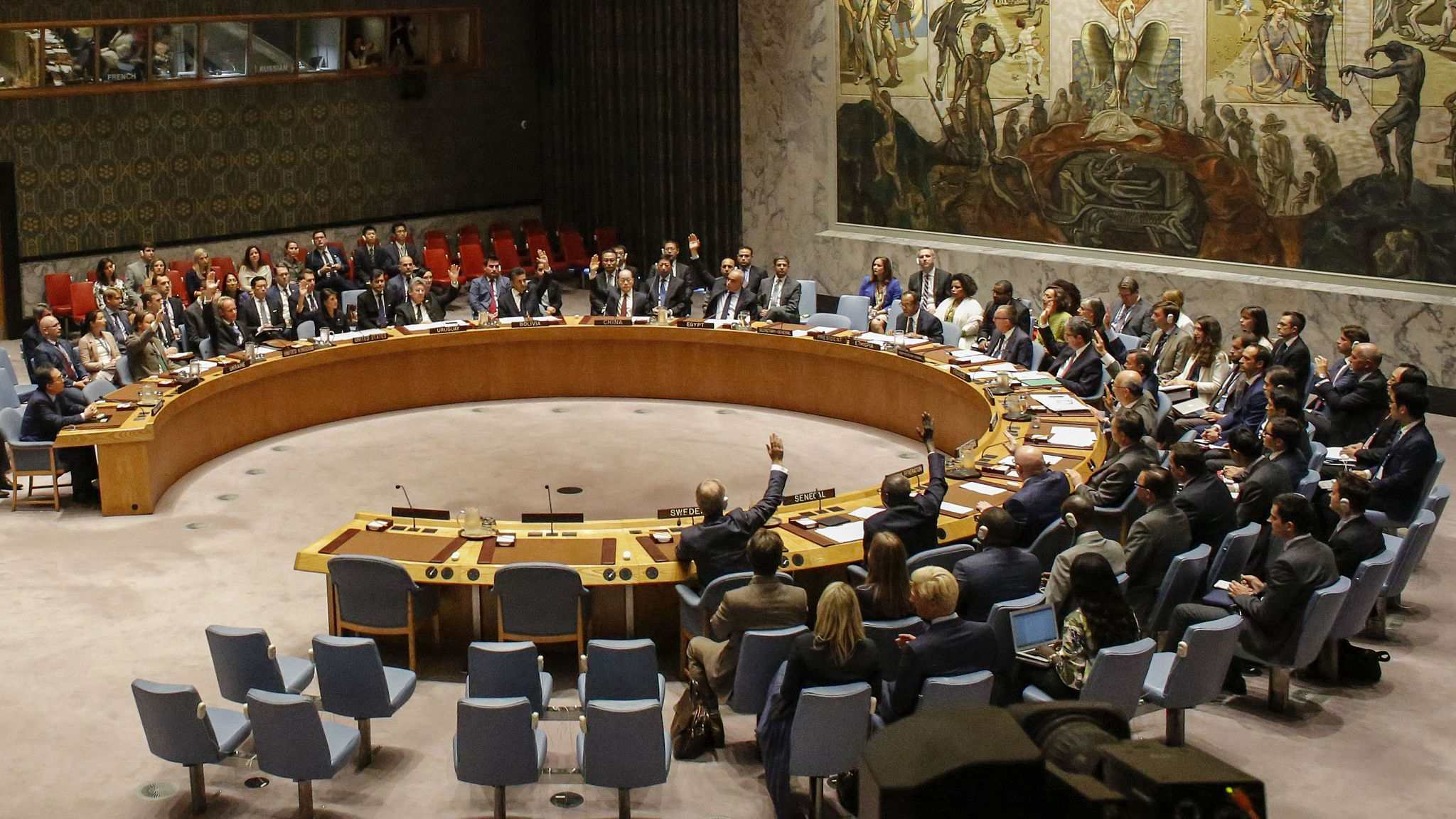Right before the historic summit between the Democratic People's Republic of Korea (DPRK)'s leader Kim Jong Un and US President Donald Trump, let us go through the sanctions that have been imposed on the DPRK for its development of nuclear and missile programs.
Timeline of sanctions against DPRK
Feb. 23, 2018
US: Imposes sanctions on one person, 27 companies and 28 ships over the DPRK's nuclear and ballistic missile programs, prohibiting US citizens from dealing with them.
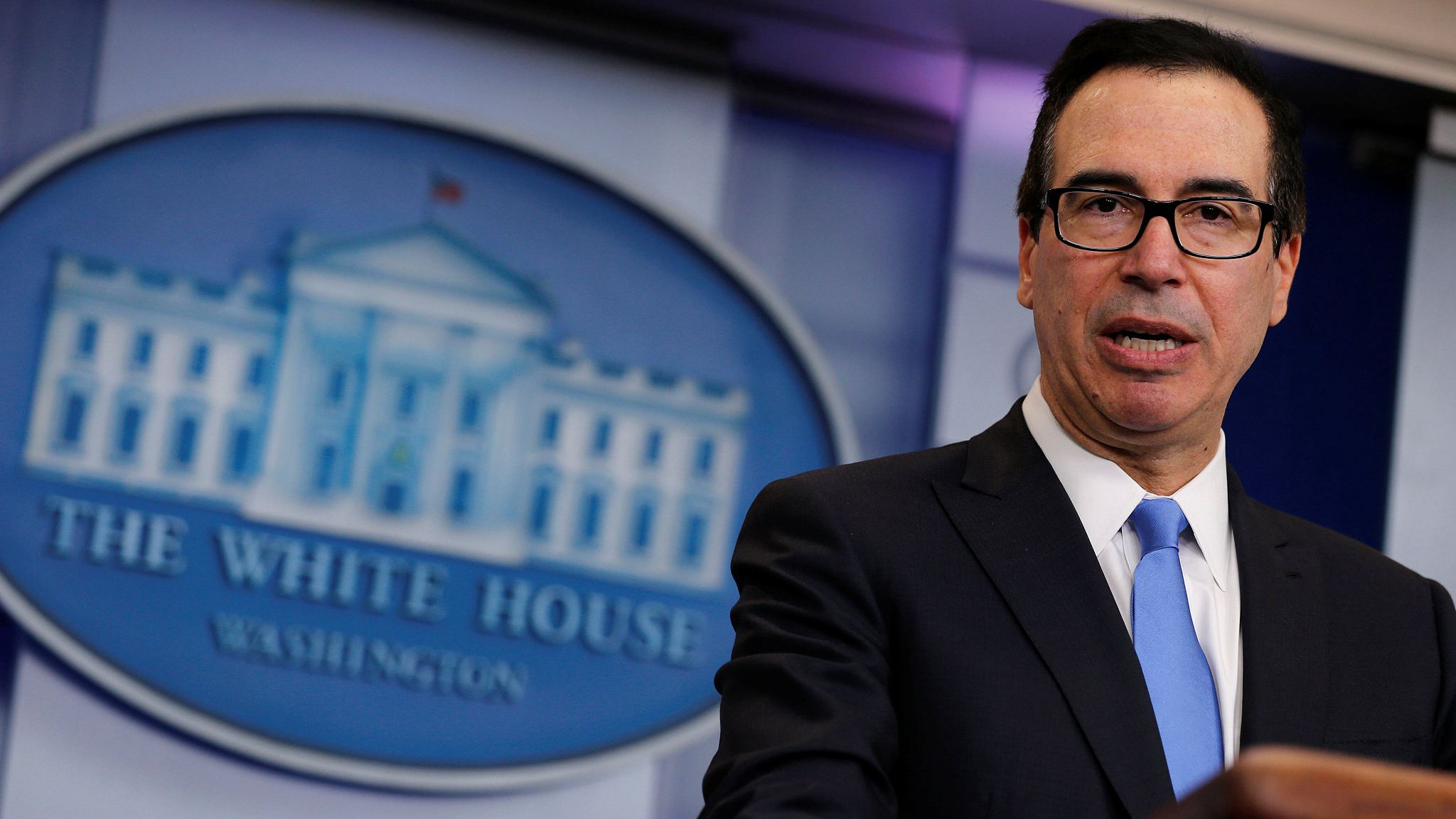
US Treasury Secretary Steven Mnuchin announces what he said was the largest DPRK-related sanctions in a bid to disrupt its shipping and trading companies and vessels and to further isolate Pyongyang, in the press room at the White House in Washington, DC, US, Feb. 23, 2018. /VCG Photo
US Treasury Secretary Steven Mnuchin announces what he said was the largest DPRK-related sanctions in a bid to disrupt its shipping and trading companies and vessels and to further isolate Pyongyang, in the press room at the White House in Washington, DC, US, Feb. 23, 2018. /VCG Photo
Dec. 22, 2017
UNSC Resolution 2397: Strengthens the measures regarding the supply, sale or transfer to the DPRK of all refined petroleum products, including diesel and kerosene.
(DPRK's launch of Hwasong-15 intercontinental ballistic missile)
Oct. 26, 2017
US: Imposes new sanctions on seven individuals and three entities of the DPRK over what it called human rights abuses.
Sept. 23, 2017
China: Limits exports of refined petroleum products and bans exports of condensates and liquefied natural gas to comply with the UN sanctions over Pyongyang's continued nuclear and ballistic missile programs.
Sept. 21, 2017
US: Imposes additional sanctions on entities that facilitate financial transactions and trade with the DPRK.
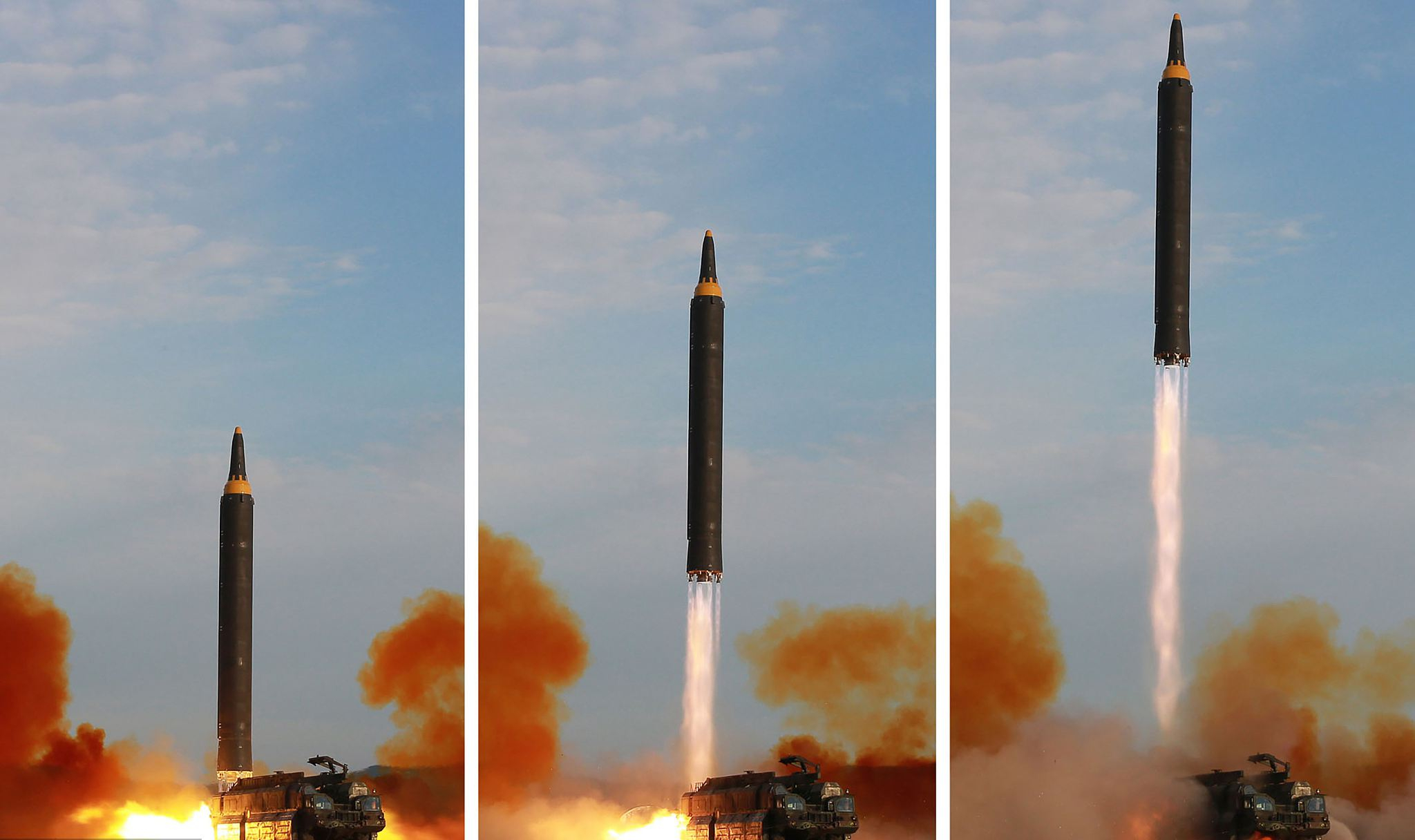
This undated combination picture released from DPRK's official Korean Central News Agency (KCNA) on Sept.16, 2017, shows a launching drill of the medium-to-long range strategic ballistic rocket Hwasong-12 at an undisclosed location. /VCG Photo
This undated combination picture released from DPRK's official Korean Central News Agency (KCNA) on Sept.16, 2017, shows a launching drill of the medium-to-long range strategic ballistic rocket Hwasong-12 at an undisclosed location. /VCG Photo
Sept. 11, 2017
UNSC Resolution 2375: Imposes additional sanctions on the DPRK, including a ban on textile exports and a cap on refined petroleum product imports.
(DPRK's hydrogen bomb test)
Aug. 5, 2017
UNSC Resolution 2371: Bans all exports of coal, iron, lead, and seafood to the DPRK, imposes new restrictions on the DPRK's Foreign Trade Bank and prohibits any increase in the number of DPRK nationals working in foreign countries.
(DPRK's tests of intercontinental ballistic missiles)
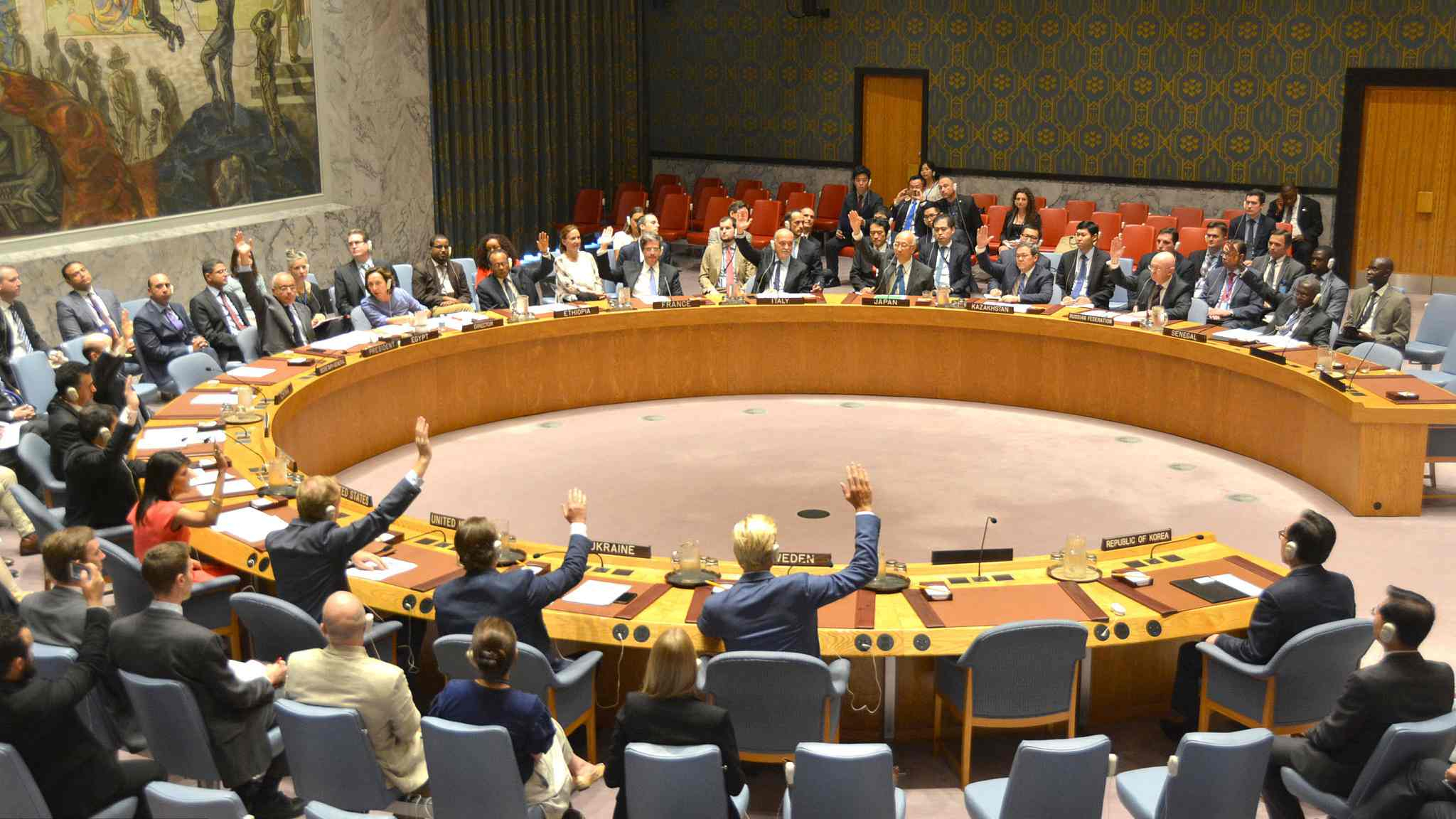
The UN Security Council unanimously adopts a sanctions resolution against the DPRK at the UN headquarters in New York, Aug. 5, 2017. /VCG Photo
The UN Security Council unanimously adopts a sanctions resolution against the DPRK at the UN headquarters in New York, Aug. 5, 2017. /VCG Photo
June 2, 2017
UNSC Resolution 2356: Sanctions additional 14 individuals and four entities designated as being engaged in or providing support for Pyongyang’s nuclear-related program.
June 1, 2017
US: Imposes sanctions on individuals and entities linked to DPRK's nuclear and missile programs.
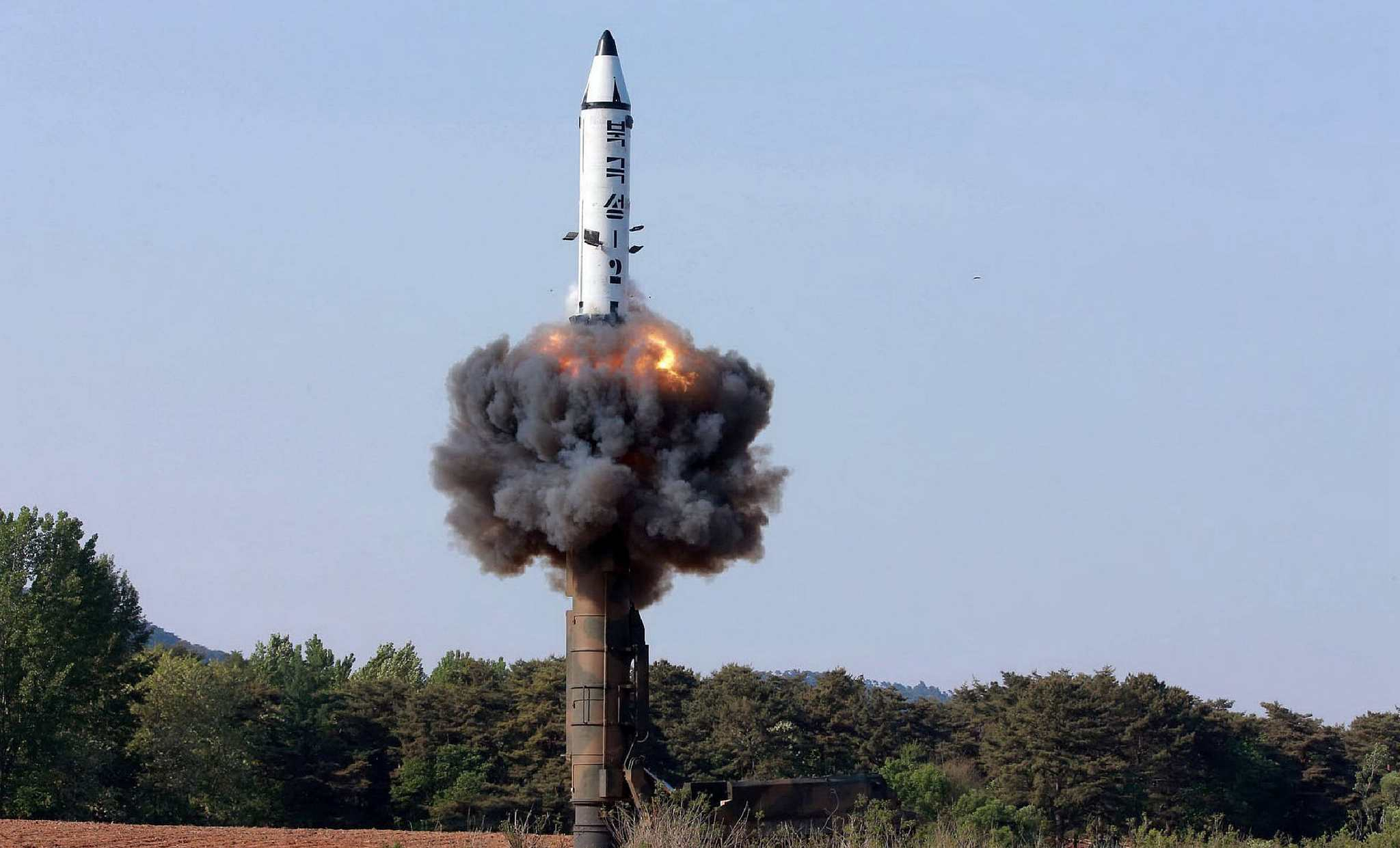
This undated picture released from DPRK's official Korean Central News Agency (KCNA) on May 22, 2017, shows DPRK's ground-to-ground medium-to-long range strategic ballistic missile Pukguksong-2 being launched in a test-fire. /VCG Photo
This undated picture released from DPRK's official Korean Central News Agency (KCNA) on May 22, 2017, shows DPRK's ground-to-ground medium-to-long range strategic ballistic missile Pukguksong-2 being launched in a test-fire. /VCG Photo
Nov.30 2016
UNSC Resolution 2321: Caps the DPRK's coal exports and bans exports of copper, nickel, zinc, and silver.
(DPRK’s fifth nuclear test)
March 2, 2016
UNSC Resolution 2270: Bans the export of gold, vanadium, titanium, and rare earth metals to the DPRK. The export of coal and iron is also banned, with an exemption for transactions that were purely for "livelihood purposes."
(DPRK's fourth nuclear test)
Jan. 2, 2015
US: Expands sanctions on DPRK's entities and individuals, some of which are involved with DPRK's nuclear and ballistic missile programs.
March 7, 2013
UNSC Resolution 2094: Imposes sanctions on money transfers to the DPRK, aiming to shut the country out of the international financial system.
(DPRK's third nuclear test)
Jan.22, 2013
UNSC Resolution 2087: Strengthens and expands existing sanctions put in place by the earlier resolutions and freezes the assets of additional DPRK individuals and people.
(DPRK's satellite launch)
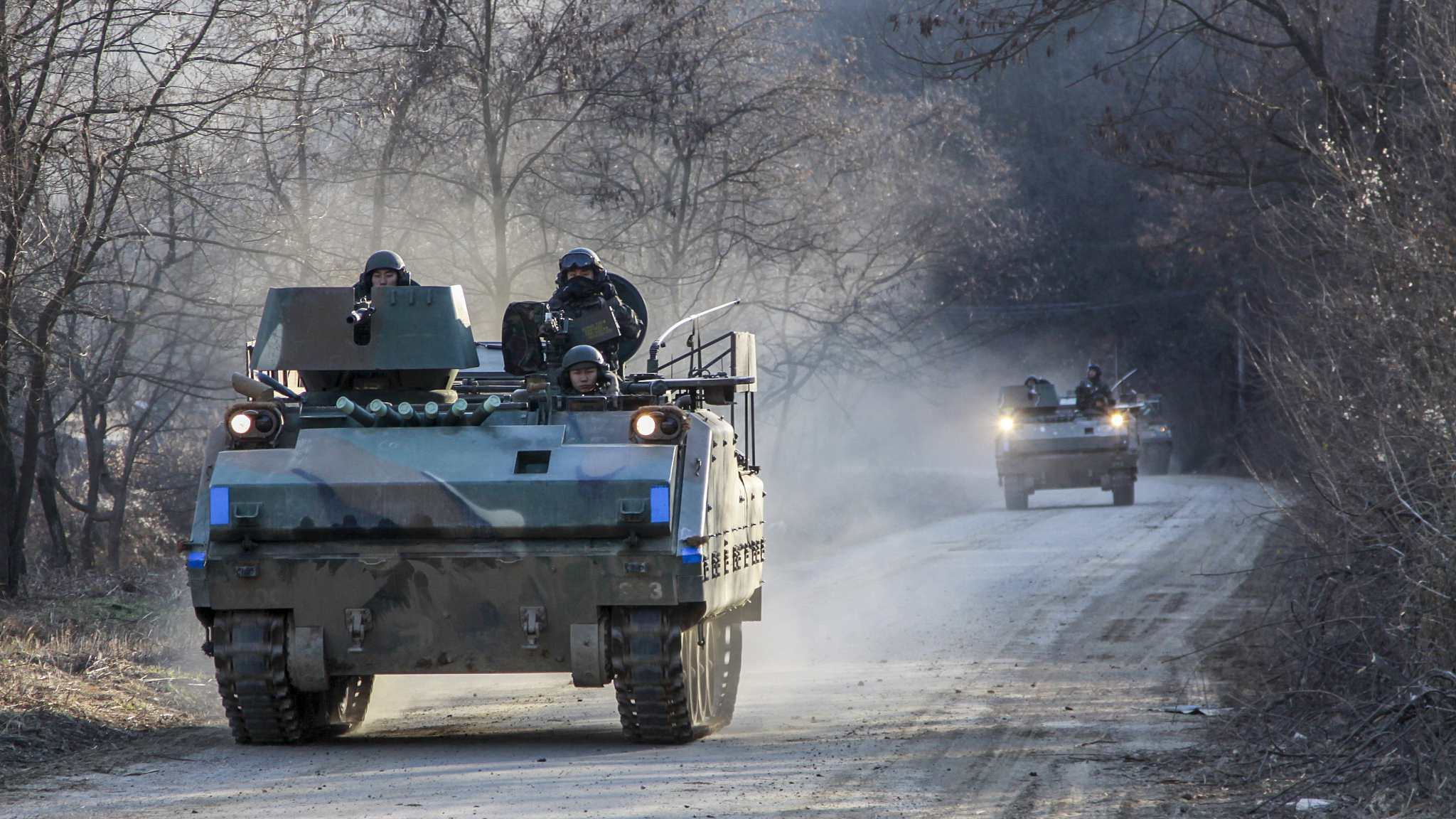
South Korean soldiers ride in an armored vehicle in Paju, South Korea, Dec. 2, 2016. /VCG Photo
South Korean soldiers ride in an armored vehicle in Paju, South Korea, Dec. 2, 2016. /VCG Photo
July 21, 2010
US: Imposes new sanctions against Pyongyang for its involvement in the sinking of the South Korean ship, the Cheonan.
June 12, 2009
UNSC Resolution 1874: Extends sanctions to the arms embargo to the country and encourages member states to inspect the DPRK's ships and destroy any cargo suspected of being related to the nuclear weapons program.
(DPRK's second nuclear test)
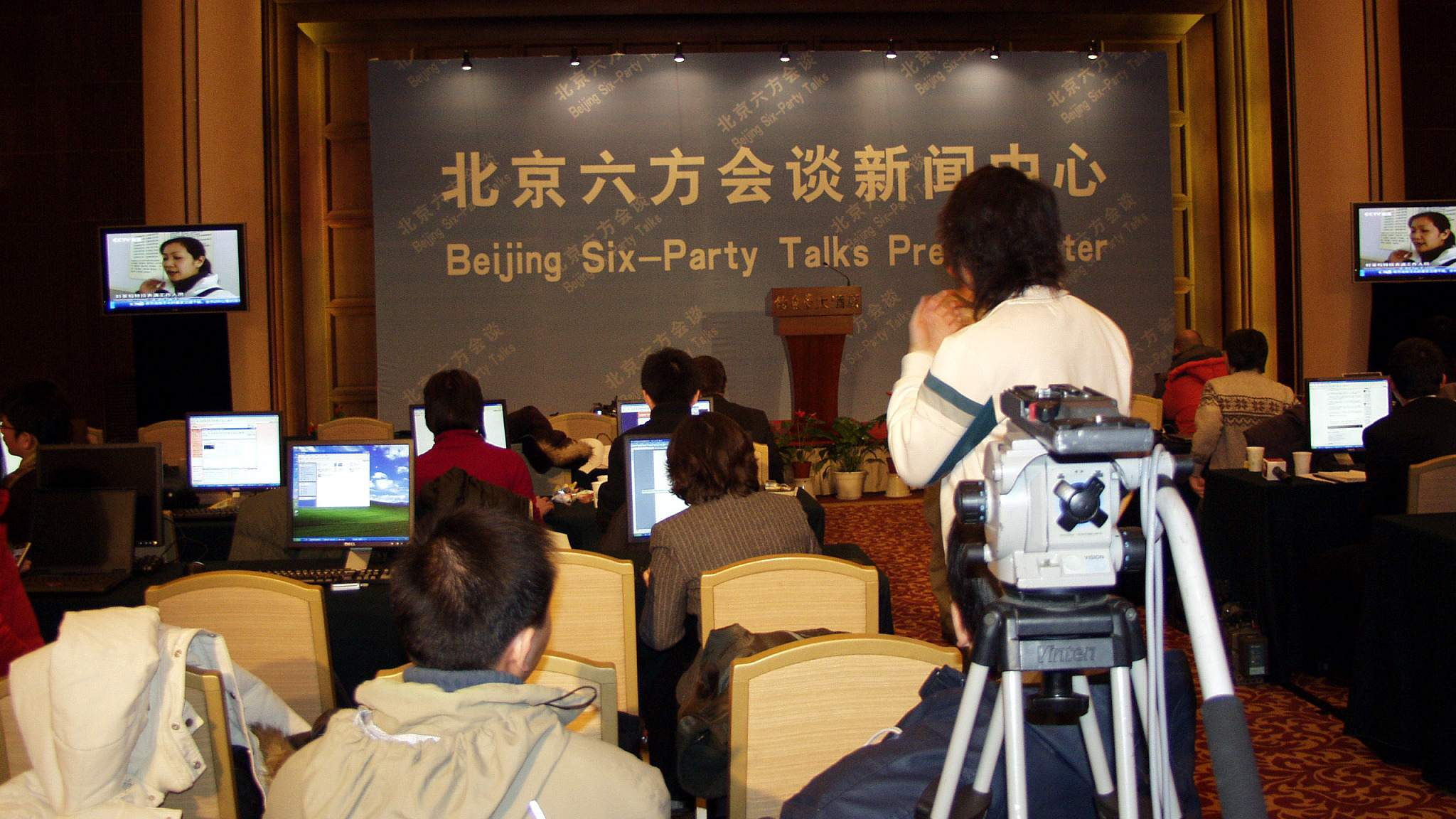
The second phase of the fifth round of six-party talks is held at Diaoyutai State Guesthouse, Beijing, Dec.18, 2006. /VCG Photo
The second phase of the fifth round of six-party talks is held at Diaoyutai State Guesthouse, Beijing, Dec.18, 2006. /VCG Photo
Oct. 14 2006
UNSC Resolution 1718: Imposes additional sanctions on commerce with Pyongyang, prohibiting the export to the DPRK of some military supplies and luxury goods.
(DPRK's first nuclear test)
July 15, 2006
UNSC Resolution 1695: Requires states to prevent missiles and related "items, materials, goods and technology" from being transferred to the DPRK's missile or weapons of mass destruction programs.
(DPRK's missile launches)
March 24, 2003
US: Imposes sanctions on the Changgwang Sinyong Corporation of DPRK for allegedly transferring missile technology to Khan Research Laboratories in Pakistan.
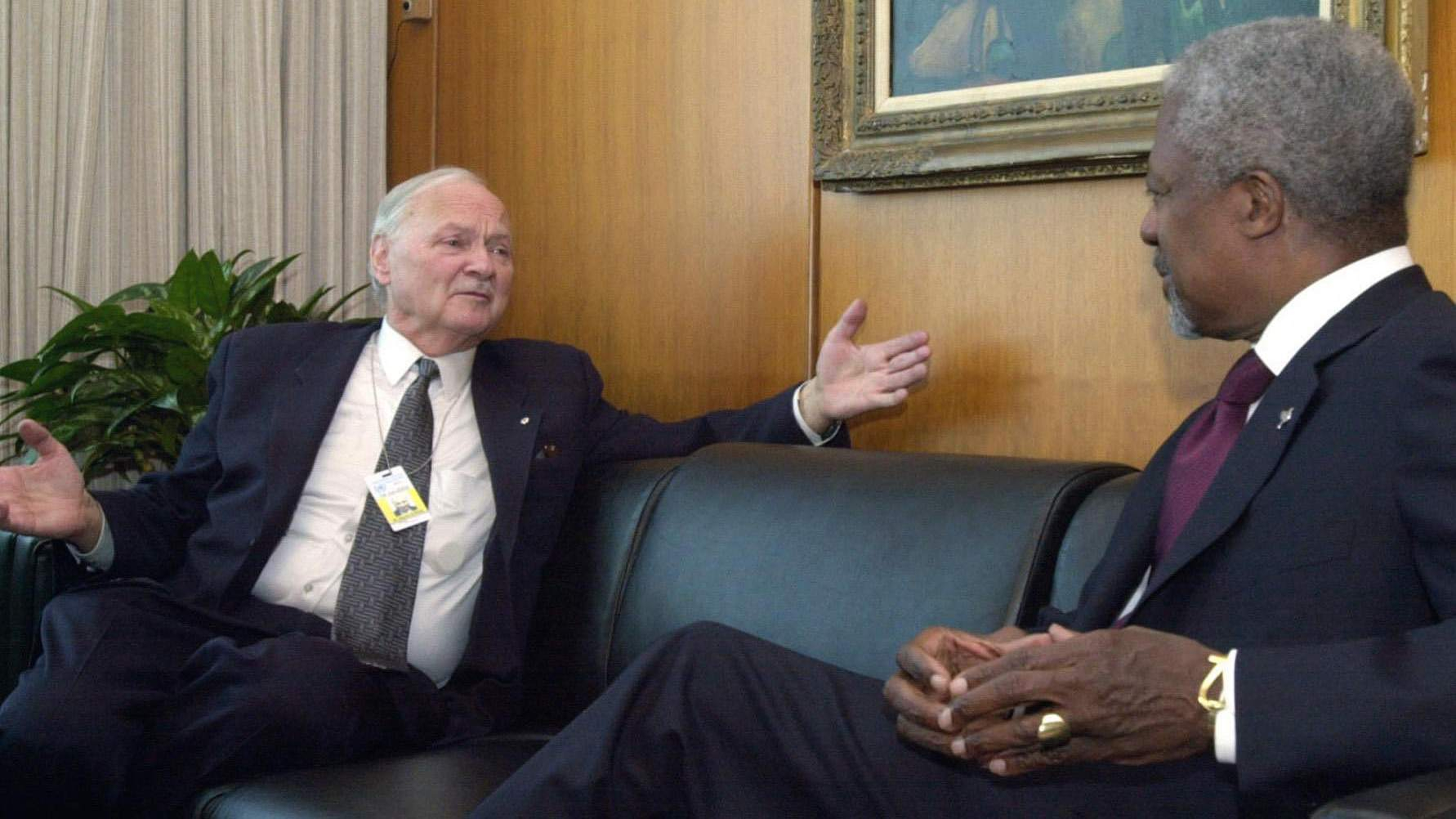
Maurice Strong (L), special envoy of then UN secretary-general Kofi Annan, reports to the UN chief on his trip to the DPRK, Jan. 22, 2003. /VCG Photo
Maurice Strong (L), special envoy of then UN secretary-general Kofi Annan, reports to the UN chief on his trip to the DPRK, Jan. 22, 2003. /VCG Photo
Aug. 16, 2002
US: Imposes sanctions on Changgwang Sinyong Corporation of the DPRK and on the DPRK government itself for allegedly transferring missile technology to Yemen.
June 26, 2001
US: Announces sanctions under the Iran Nonproliferation Act of 2000 on DPRK’s Changgwang Sinyong Corporation, for unspecified missile-related transfers to Iran. The sanctions prohibit any US entity from doing business with the DPRK firm.
Jan. 2, 2001
US: Imposes sanctions on DPRK’s Changgwang Sinyong Corporation for alleged violation of the Iran Nonproliferation Act of 2000.
April 6, 2000
US: Imposes sanctions on a DPRK firm, Changgwang Sinyong Corporation, for allegedly proliferating MTCR Category I items, possibly to Iran. Category I items include complete missile systems with ranges exceeding 300 kilometers and payloads over 500 kilograms, major subsystems, rocket stages or guidance systems, production facilities for MTCR-class missiles, or technology associated with such missiles.
April 17, 1998
US: Imposes sanctions on DPRK and Pakistan in response to Pyongyang's alleged transfer of missile technology and components to Pakistan's Khan Research Laboratory.
Aug. 6, 1997
US: Imposes new sanctions on two additional DPRK entities for unspecified missile-proliferation activities.
May 24, 1996
US: Imposes sanctions on DPRK and Iran for missile technology-related transfers. The sanctions prohibit any imports or exports to sanctioned firms and to those sectors of the DPRK economy that are considered missile-related.
March 6, 1992
US: Imposes sanctions on DPRK's Lyongaksan Machineries and Equipment Export Corporation and Changgwang Sinyong Corporation for alleged missile proliferation activities.

